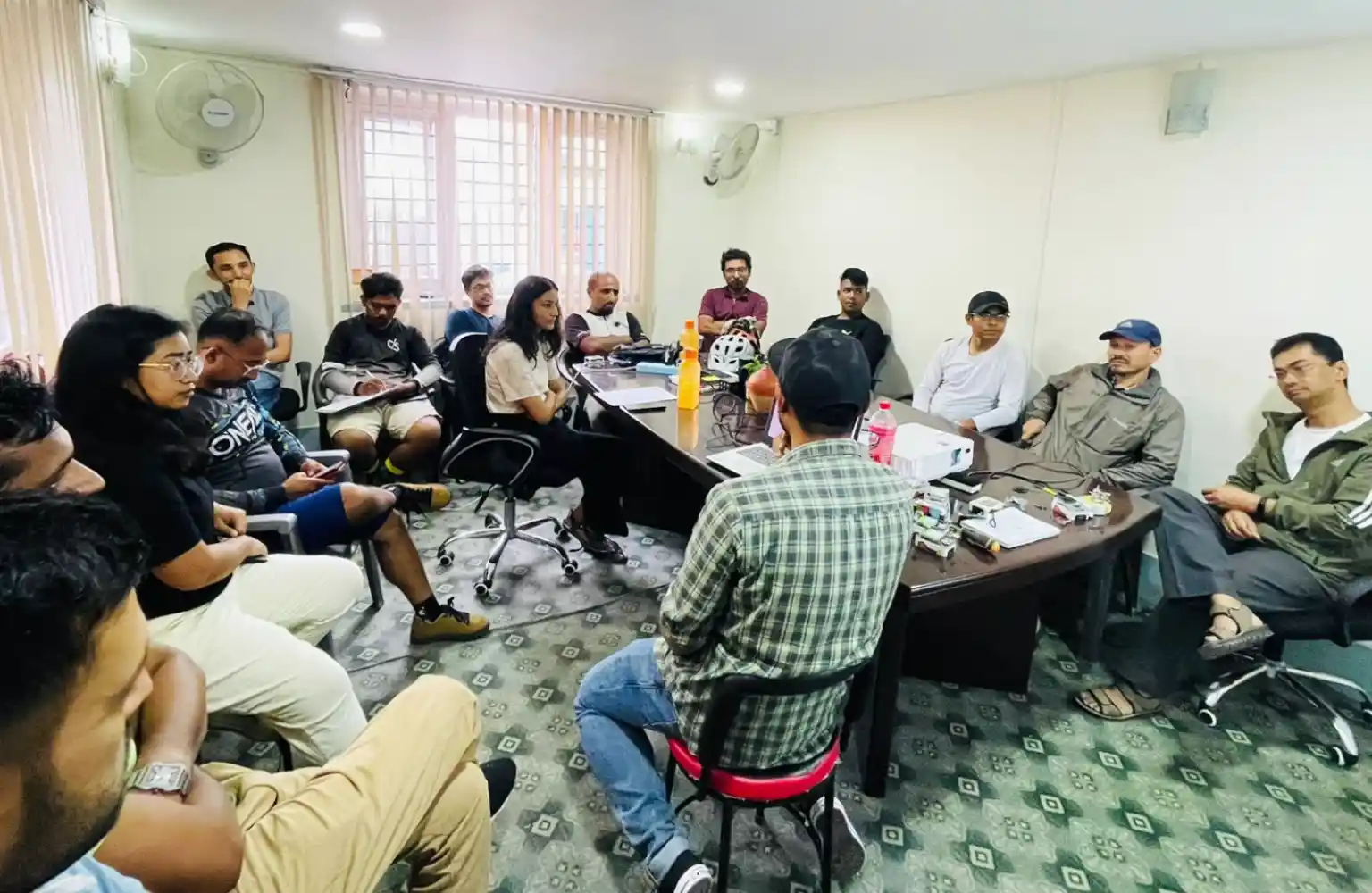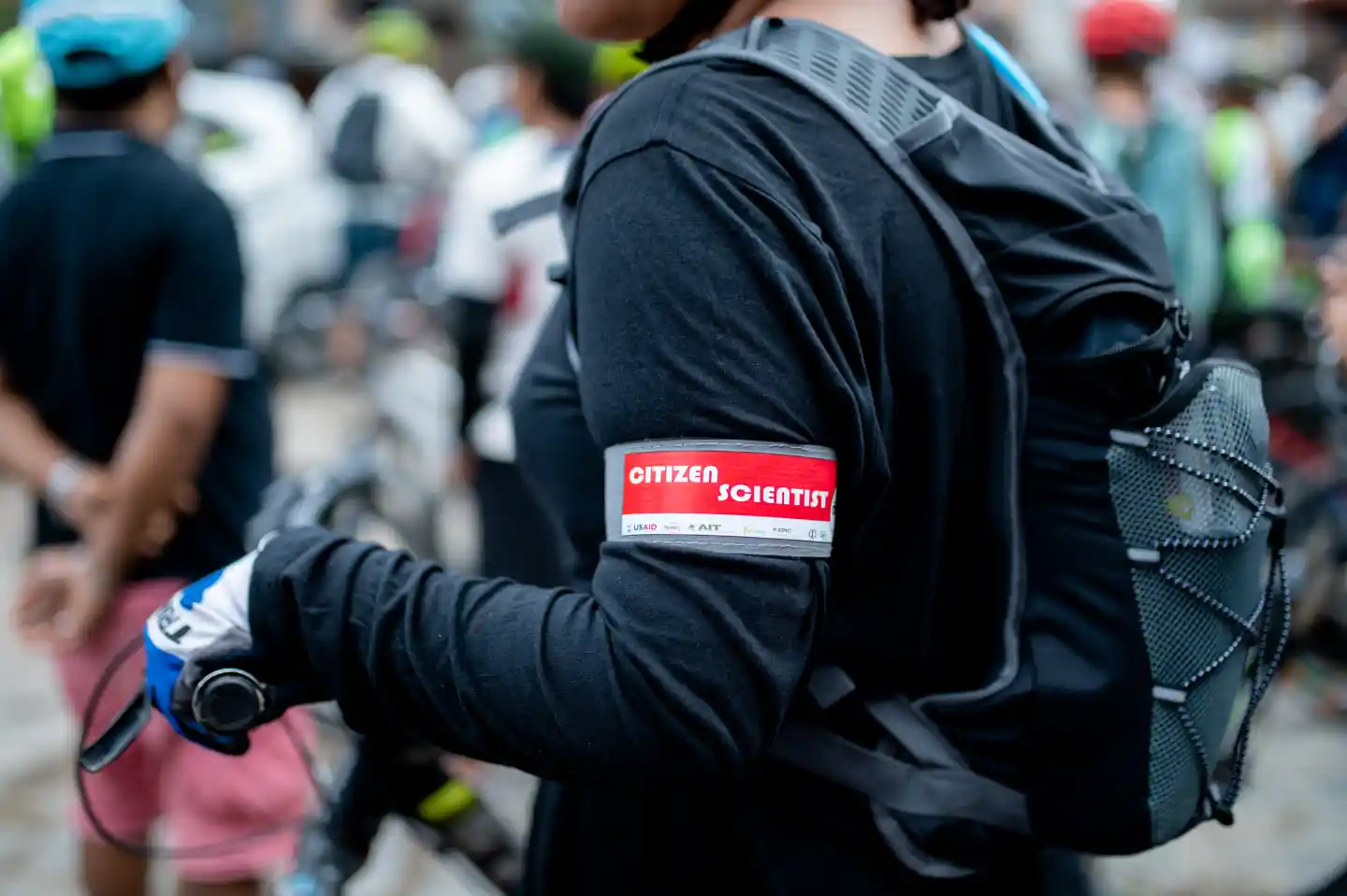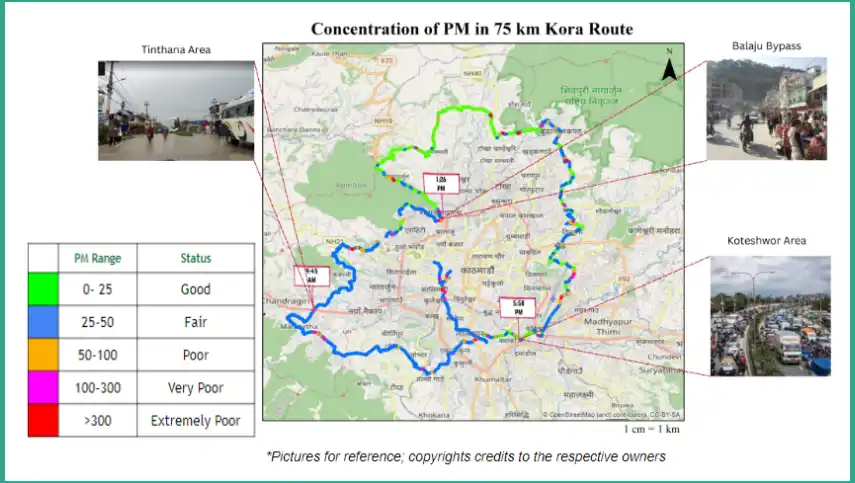GD Labs, in partnership with FHI Nepal, launched an air pollution awareness project during Kora-2023. This event, an annual cycling drawing over 2000 participants, provided a unique platform to gather and disseminate air quality data. By engaging cyclists, who are especially vulnerable to air pollution due to their proximity to motorized vehicles, this initiative aimed to raise awareness and promote community-based environmental monitoring through the citizen science approach.
Project Kickoff: Training the Cyclists
The project began with a comprehensive training session on July 8th. Eighteen enthusiastic Kora participants gathered to learn about air pollution and the methodologies for collecting Air Quality Index (AQI) data. The training emphasized the importance of their role as citizen scientists and equipped them with the necessary skills to effectively gather data.

On the Ground: Collecting Data
Nine volunteers were selected as citizen scientists for the Kora-2023 event. These volunteers were divided into three groups, each assigned to a specific Kora route: 50k, 75k, and 100k. Armed with portable air quality monitoring kits attached to their bicycles, they set out to collect air quality data along their designated routes.


Analyzing and Sharing the Results
After the event, the collected data was meticulously analyzed. In July 28th, a dissemination program was organized, inviting the citizen scientists and other stakeholders. During this event, the findings were shared, and the volunteers provided valuable feedback. They expressed how the project had made them more informed about air pollution. Interestingly, the air quality sensors on their bicycles piqued the curiosity of many fellow cyclists, leading to discussions about air pollution and the sensors themselves.

Impact and Success
The project was a resounding success, demonstrating how low-cost sensors and the citizen science approach can effectively gather important environmental data and raise public awareness. Key outcomes included:
- Enhanced knowledge and engagement of citizen scientists.
- Successful data collection and analysis of air quality along the Kora cycling routes.
- Increased awareness about air pollution among participants and the broader community.
Citizen scientists reported a significant increase in their understanding of air pollution. They also noted that the presence of air quality sensors initiated conversations, spreading awareness among other cyclists about the importance of monitoring air quality.
